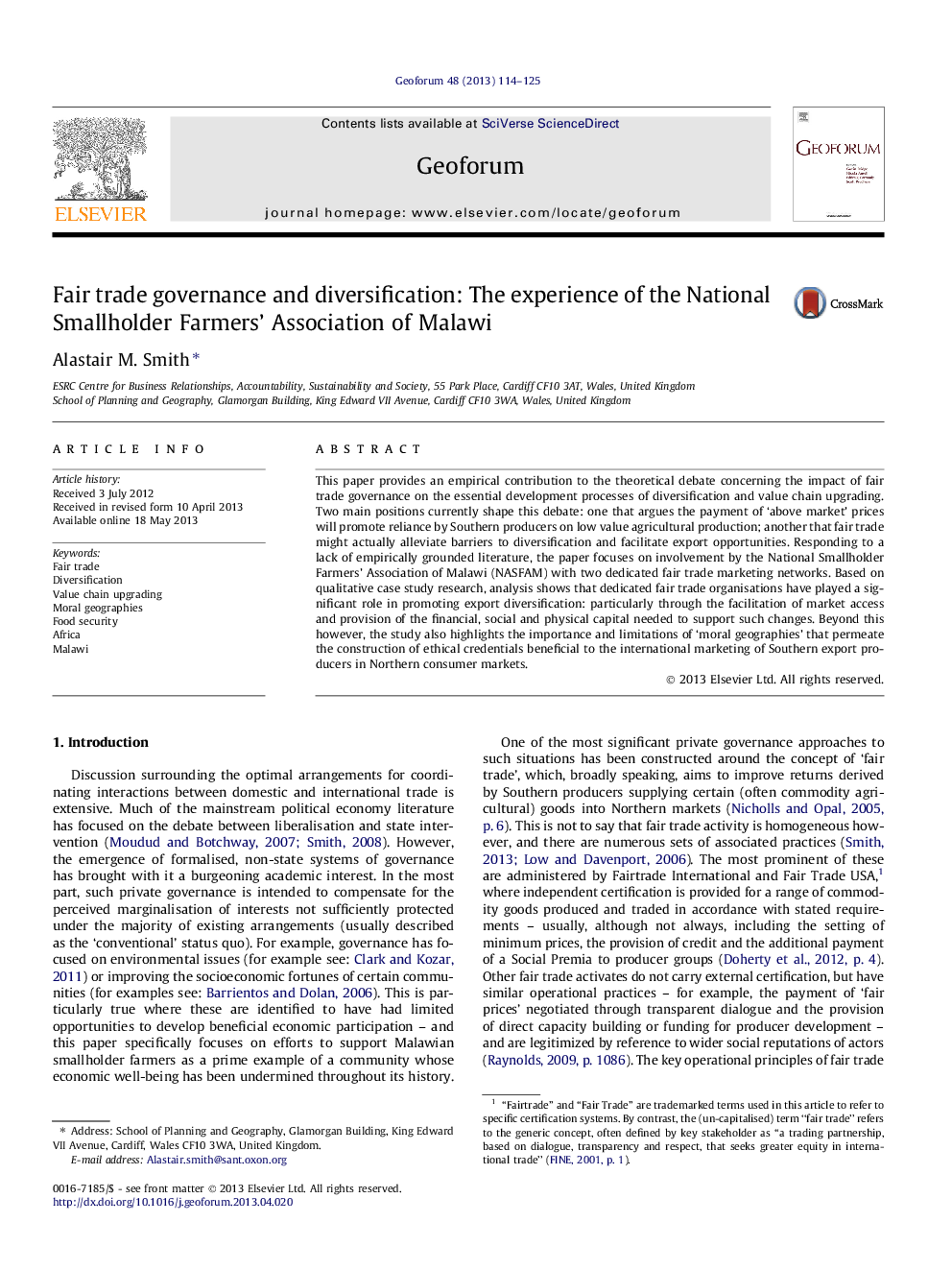| Article ID | Journal | Published Year | Pages | File Type |
|---|---|---|---|---|
| 5074249 | Geoforum | 2013 | 12 Pages |
â¢First focused empirical investigation of fair trade governance and diversification.â¢Fair trade does not universally retard diversification and worsen local food security.â¢Fair trade governance can alleviate constraints on diversification capacity.â¢'Moral geographies' can play a critical role in diversification by fair trade producers.â¢Fair trade is still limited as a tool for shaping advantage without wider transformations.
This paper provides an empirical contribution to the theoretical debate concerning the impact of fair trade governance on the essential development processes of diversification and value chain upgrading. Two main positions currently shape this debate: one that argues the payment of 'above market' prices will promote reliance by Southern producers on low value agricultural production; another that fair trade might actually alleviate barriers to diversification and facilitate export opportunities. Responding to a lack of empirically grounded literature, the paper focuses on involvement by the National Smallholder Farmers' Association of Malawi (NASFAM) with two dedicated fair trade marketing networks. Based on qualitative case study research, analysis shows that dedicated fair trade organisations have played a significant role in promoting export diversification: particularly through the facilitation of market access and provision of the financial, social and physical capital needed to support such changes. Beyond this however, the study also highlights the importance and limitations of 'moral geographies' that permeate the construction of ethical credentials beneficial to the international marketing of Southern export producers in Northern consumer markets.
